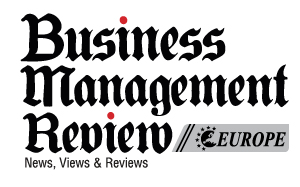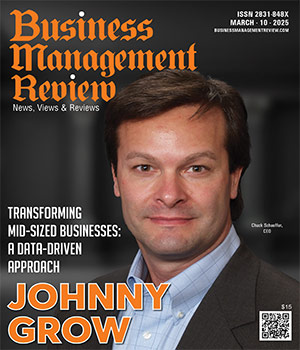I agree We use cookies on this website to enhance your user experience. By clicking any link on this page you are giving your consent for us to set cookies. More info
- Home
- Market Research
- HumanBranding
In a world flooded with traditional market research methods and the growing influence of AI, many companies still rely on outdated strategies that focus solely on surface-level data. Enter Human Branding—a revolutionary force that stepped into an industry bogged down by conventional thinking and completely redefined the landscape. Human Branding has always stood apart from traditional market research, challenging the norms that dominated the industry. This outsider perspective has proven to be the company’s greatest strength, allowing it to uncover insights that others often overlook. From the very beginning, Human Branding understood that true insight into human behavior goes far beyond what is immediately visible. Human Branding didn’t just accept the status quo—it redefined the entire landscape of market research. The company has spent nearly two decades dismantling the limitations of traditional market research, delivering insights that speak to the emotional, psychological, linguistic, cultural, and contextual factors driving human decisions. Its clients include Fortune 500 players across pharma, health, wellness, and packaged goods—industries where human behavior is complex, highly emotional, and often misunderstood.
Human Branding’s ability to step outside the boundaries of traditional approaches became its defining advantage. The company didn’t simply follow the well-worn path—it forged a new one, offering a profound shift in how businesses understand their audiences. Recognizing the failings of traditional research, Human Branding pioneered a new way of thinking. It combined qualitative and quantitative research with ethnographic methodologies and proprietary behavioral science frameworks, unlocking insights that go far beyond the obvious. These insights penetrate the deeper emotional and psychological drivers behind human choices, transforming basic data into powerful, human-centered strategies that resonate on a much more profound level.
In today’s high-stakes marketing environment, where data pours in from every touchpoint and artificial intelligence promises instant answers, a surprising trend is emerging: a return to human understanding. Not just customer feedback or consumer sentiment, but a deeper, more rigorous decoding of human behavior, rooted in anthropology—the original behavioral science. While AI’s capacity to process vast amounts of data is groundbreaking, it has a crucial limitation: it cannot grasp the complexity of human behavior, particularly the emotional and subconscious factors that influence decisions. Human Branding offers more nuanced insights that go beyond numbers, revealing the hidden layers of human motivation that drive decision-making.
Human Branding’s approach is designed to reveal not just what people do, but why. It’s a discipline that sits at the intersection of data and meaning—and it’s proving to be a powerful strategic asset in an increasingly commoditized insights landscape. In the words of Johanna Faigelman, founder and CEO of Human Branding, “We’re not just about collecting data; we’re about understanding what drives people on a deeper, more emotional level. Anthropology allows us to dig into the complexities of human behavior—the beliefs, values, emotions, and influences that shape decisions. This helps businesses craft strategies that don’t just talk at consumers, but resonate with them.”
Take the pharmaceutical industry, where patient experience and emotional resonance are critical to brand loyalty and treatment adherence. A client sought to understand the emotional state of breast cancer patients after treatment, specifically the significance of the “ringing of the bell” after chemotherapy, which is often viewed as a celebratory moment. However, ethnographic research uncovered a deeper, unspoken fear of cancer recurrence, something traditional surveys failed to capture. Through subtle observations, the company revealed that patients’ living spaces were filled with symbolic mementos, heavy blankets, and journals—symbols of an ongoing emotional struggle. This profound discovery reshaped the client’s messaging and support systems, ensuring that their approach acknowledged the complex emotional challenges patients faced long after treatment. It also prompted changes in treatment protocols to address the fear of recurrence, ultimately benefiting both patients psychologically and medically.
In consumer goods, Human Branding applied its behavioral frameworks to everything from packaging and positioning to campaign testing and pricing strategy. In one quantitative study on medication adherence, Human Branding found that respondents were less likely to admit to forgetting their medication when asked, “How often do you forget to take your medication?”—a negatively framed question. However, when the same question was positively reframed as, “How often do you remember to take your medication?” the reported forgetfulness increased by 20 percentage. This subtle shift in phrasing revealed a hidden truth: when numbers are stripped of their context, they can be misleading. Truly understanding human behavior requires more than just data collection—it requires an awareness of how language, emotional nuance, and framing influence the answers behind the numbers.
As businesses continue to navigate the rise of AI and big data, the companies that will thrive are those that embrace the complexity of human motivation. Human Branding’s unique Applied Anthropology Thinking (AAT)™ approach offers the tools to decode these intricate layers, providing revolutionary insights that help companies create strategies that resonate deeply with their audiences. Human Branding didn’t just enter a crowded market—it redefined it. By understanding that human behavior is driven by more than just logic and algorithms, the company has set a new standard for the industry, ensuring that the deepest truths of human nature are never lost in the data.
Human Branding has revolutionized the way businesses approach both their customers and their strategies, creating a more authentic, human-centered connection that leads to deeper, more meaningful results.
Human Branding’s ability to step outside the boundaries of traditional approaches became its defining advantage. The company didn’t simply follow the well-worn path—it forged a new one, offering a profound shift in how businesses understand their audiences. Recognizing the failings of traditional research, Human Branding pioneered a new way of thinking. It combined qualitative and quantitative research with ethnographic methodologies and proprietary behavioral science frameworks, unlocking insights that go far beyond the obvious. These insights penetrate the deeper emotional and psychological drivers behind human choices, transforming basic data into powerful, human-centered strategies that resonate on a much more profound level.
In today’s high-stakes marketing environment, where data pours in from every touchpoint and artificial intelligence promises instant answers, a surprising trend is emerging: a return to human understanding. Not just customer feedback or consumer sentiment, but a deeper, more rigorous decoding of human behavior, rooted in anthropology—the original behavioral science. While AI’s capacity to process vast amounts of data is groundbreaking, it has a crucial limitation: it cannot grasp the complexity of human behavior, particularly the emotional and subconscious factors that influence decisions. Human Branding offers more nuanced insights that go beyond numbers, revealing the hidden layers of human motivation that drive decision-making.
-
We’re not just about collecting data; we’re about understanding what drives people on a deeper, more emotional level. Anthropology allows us to dig into the complexities of human behavior—the beliefs, values, emotions, and influences that shape decisions. This helps businesses craft strategies that don’t just talk at consumers, but resonate with them
Human Branding’s approach is designed to reveal not just what people do, but why. It’s a discipline that sits at the intersection of data and meaning—and it’s proving to be a powerful strategic asset in an increasingly commoditized insights landscape. In the words of Johanna Faigelman, founder and CEO of Human Branding, “We’re not just about collecting data; we’re about understanding what drives people on a deeper, more emotional level. Anthropology allows us to dig into the complexities of human behavior—the beliefs, values, emotions, and influences that shape decisions. This helps businesses craft strategies that don’t just talk at consumers, but resonate with them.”
Take the pharmaceutical industry, where patient experience and emotional resonance are critical to brand loyalty and treatment adherence. A client sought to understand the emotional state of breast cancer patients after treatment, specifically the significance of the “ringing of the bell” after chemotherapy, which is often viewed as a celebratory moment. However, ethnographic research uncovered a deeper, unspoken fear of cancer recurrence, something traditional surveys failed to capture. Through subtle observations, the company revealed that patients’ living spaces were filled with symbolic mementos, heavy blankets, and journals—symbols of an ongoing emotional struggle. This profound discovery reshaped the client’s messaging and support systems, ensuring that their approach acknowledged the complex emotional challenges patients faced long after treatment. It also prompted changes in treatment protocols to address the fear of recurrence, ultimately benefiting both patients psychologically and medically.
In consumer goods, Human Branding applied its behavioral frameworks to everything from packaging and positioning to campaign testing and pricing strategy. In one quantitative study on medication adherence, Human Branding found that respondents were less likely to admit to forgetting their medication when asked, “How often do you forget to take your medication?”—a negatively framed question. However, when the same question was positively reframed as, “How often do you remember to take your medication?” the reported forgetfulness increased by 20 percentage. This subtle shift in phrasing revealed a hidden truth: when numbers are stripped of their context, they can be misleading. Truly understanding human behavior requires more than just data collection—it requires an awareness of how language, emotional nuance, and framing influence the answers behind the numbers.
As businesses continue to navigate the rise of AI and big data, the companies that will thrive are those that embrace the complexity of human motivation. Human Branding’s unique Applied Anthropology Thinking (AAT)™ approach offers the tools to decode these intricate layers, providing revolutionary insights that help companies create strategies that resonate deeply with their audiences. Human Branding didn’t just enter a crowded market—it redefined it. By understanding that human behavior is driven by more than just logic and algorithms, the company has set a new standard for the industry, ensuring that the deepest truths of human nature are never lost in the data.
Human Branding has revolutionized the way businesses approach both their customers and their strategies, creating a more authentic, human-centered connection that leads to deeper, more meaningful results.
Thank you for Subscribing to Business Management Review Weekly Brief




